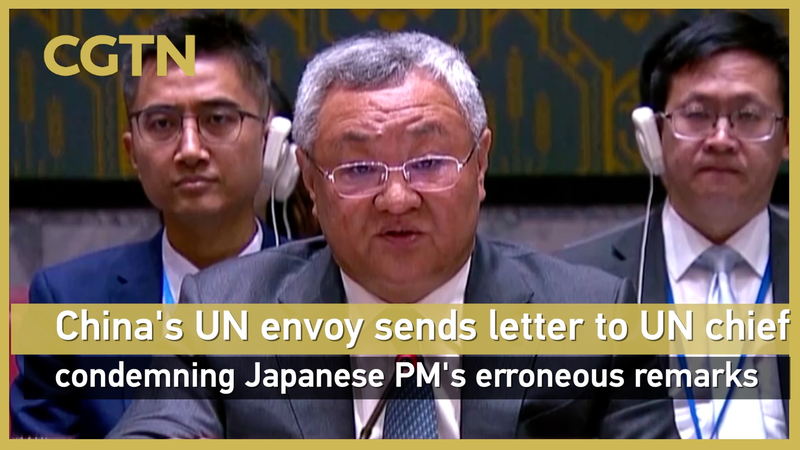On November 21, 2025, China’s Permanent Representative to the United Nations, Fu Cong, sent a letter to UN Secretary-General António Guterres, expressing deep concern over remarks made by Japanese Prime Minister Sanae Takaichi during a parliamentary session earlier this month.
In his letter, Fu highlighted what he characterized as unprecedented provocations on Taiwan. He noted that this was the first time since Japan’s 1945 defeat that a Japanese leader, in a formal setting, had promoted the notion that "a Taiwan contingency is a Japan contingency" and tied it to collective self-defense. He added that it was the first hint at armed involvement in the Taiwan question and an implied military threat against China’s core interests.
"These comments undermine regional stability and challenge the principle of peaceful resolution of cross-strait ties," Fu wrote, urging Japan to refrain from actions that could destabilize the region.
While Tokyo has been reassessing its security posture in response to shifting geopolitical tensions, the letter underscores Beijing’s sensitivity to any suggestion of military involvement in the Taiwan question. Experts say the exchange reflects growing concerns in East Asia over the role of collective self-defense in Japan’s foreign policy.
For young global citizens and business enthusiasts, the episode highlights how security policy shifts can ripple through international markets and diplomatic relations. Travelers and digital nomads exploring East Asia should stay attuned to these developments, as they can influence everything from flight routes to cross-border collaborations.
As regional powers navigate a complex security landscape, all eyes will be on Tokyo and Beijing to see whether diplomatic channels can ease the newfound tensions and uphold stability in the Taiwan Strait.
Reference(s):
cgtn.com




